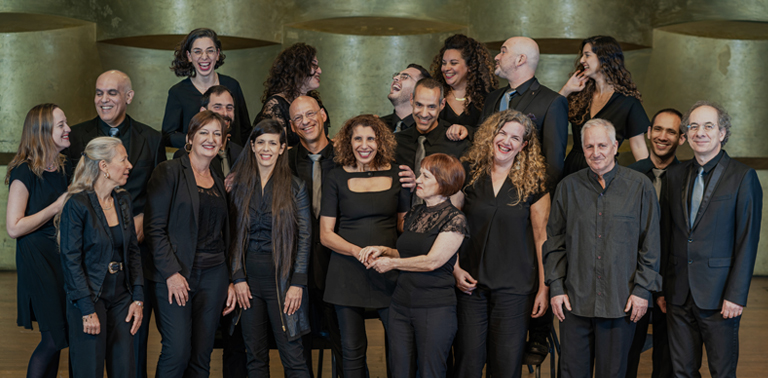

G.F. Handel: The Oratorio Judas Maccabaeus
The Israeli Vocal Ensemble
Soloists: Daniela Skorka, soprano; Alon Harari, Alt; Ron Silberstein, tenor; Oded Reich, bass; Narrator: Alon Neuman
The Jerusalem Symphony Orchestra
Conductor Yuval Benozer
Concert duration: 01:27:50 hours.
Live recorded at Tel Aviv Museum of Art in 2.12.20.
The Oratorio Judas Maccabaeus is made up of three parts:
The first part opens with a description of the death of Matityahu and the mourning of the people for the death of its leader (a typical and beautiful eulogy choir section). His son Shimon encourages the faith of the people and calls on them to take up arms, while his brother Judah accepts the role of leader and encourages his people with reflections on freedom and victory in the power of faith in God.
In the second part of the oratorio, the Israelites win. But when they learn that the Seleucid commander Gorgias is preparing his army for revenge, the rejoicing of the people turns into despair (Ah! Wretched Israel) and Judah again inspires a spirit of warfare and heroism in the people and demands the destruction of the altars of infidels and resistance to the false religion (with the most famous aria Sound an Alarm).
In the third and final part, the Jews win and are received in a solemn parade, and the people celebrate the arrival of the long-awaited peace in one of the beautiful duets Oh Lovely Peace.
From the Musical Director:
“I “discovered” the oratorio Judas Maccabaeus while studying at the Indiana University School of Music. My desire to conduct music that has an Israeli element to it in my graduation concert, made me choose the story of the Maccabees. Hours of immersion into Handel’s music made me fall in love with the piece, for its combination of depth and lightness; drama and entertainment; beautiful choral passages and its unconventional ending which celebrates peace.
As I did then, I chose to replace the recitatives with reading passages by an actor, and to shorten some of the music parts. Thus the oratorio lasts “only” an hour and a half and yet the dramatic sequence is still preserved. I hope listeners will fall in love in Handel’s music as I have; music which is so successfully woven into a story close to us.”
Yuval Benozer
![[:he]mail-mobile-ixon[:]](https://ivocal.co.il/wp-content/uploads/mail-mobile-ixon.png)

![[:he]mail-ixon[:]](https://ivocal.co.il/wp-content/uploads/mail-ixon.png)